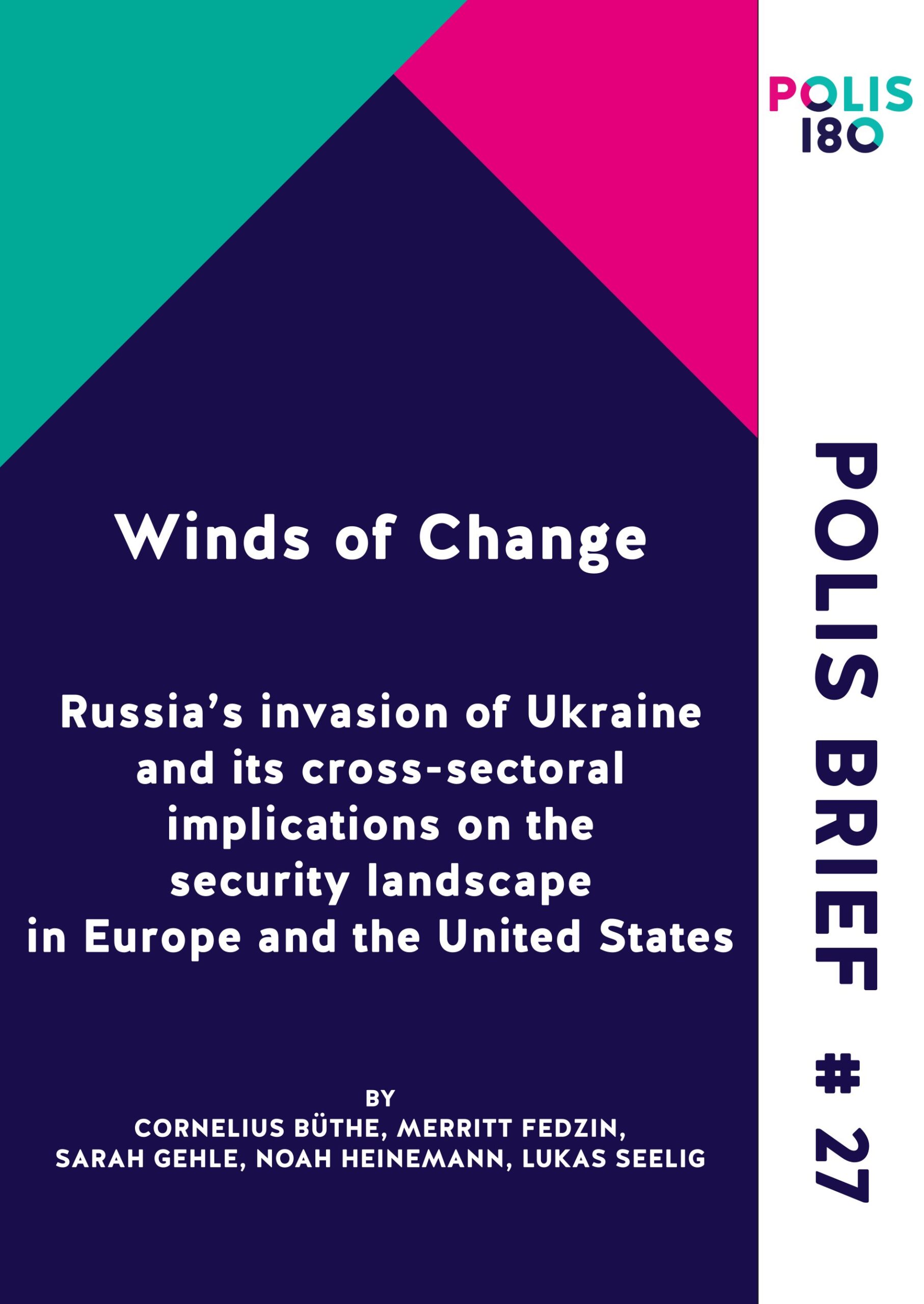With its decision to further invade Ukraine on the 24th of February 2022, the Russian Federation has brought conventional war back on the European map and thereby catalysed multifaceted shifts in the international security order. To that effect, this paper examines the concrete ways in which the war has triggered a change in the threat landscape of the EU, NATO and the United States. A particular focus is placed on the issues of the Arctic, international law, sanctions, nuclear proliferation and cybersecurity in order to trace the policy-related implications.
Next to continued support for Ukraine in its effort to defend territorial integrity, national sovereignty and the European security order, the paper presents further options on how Western countries can manage the war’s repercussions in multiple realms of international and security affairs.
by Cornelius Büthe, Merrit Fedzin, Sarah Gehle, Noah Heinemann, Lukas Seelig,
28.04.2023
Lukas Seelig is a student of the double master „Public Policy“ and „Public Administration“ at Sciences Po and the LSE, where he specializes in Management, Public Affairs and Finance. He joined „Polis180“ in 2020 and has been serving as Co-Head of the program „European Economic Policy“ since mid-2022. While his academic focus is primarily on the field of economics, he also has a keen interest in the area of „Security & Defense“ and is actively involved in the respective program at „Polis180“.
Sarah Gehle is currently studying the Master program „War and Conflict Studies“ at the University of Potsdam where she focusses her studies mainly on issues of maritime security. In 2022 she joined „Polis180“ and has been engaged in the „European Security and Defense Policy“ program ever since.
Merritt Fedzin is a student of the Master of International Affairs at the Hertie School in Berlin, where International Security is her area of concentration. She has specialized in European Foreign and Security Policy with respect to Central Asia. Strategy building and climate security are an essential part of her work.
She joined Polis180 in May 2021 and has been the co-head of the European Security and Defence Program from spring 2022 until spring 2023.
Cornelius Büthe is a student of the master program „International Politics and International Law“ at the Christian-Albrechts-University of Kiel, where he focuses on European security interests and problems of international law in conflict situations. He joined „Polis180“ at the end of 2020 and is the Co-Head of the program „European Security- and Defence Policy“.
Noah Heinemann specializes on security and defence policy in his Bachelor-studies of Political Science and Economics at Heidelberg University. Currently, he is researching the impact of NATO’s enlargement processes on the alliance‘ military strategy. He has been Co-Head of the Program „European Security and Defence Policy“ at Polis180 since 2022.
